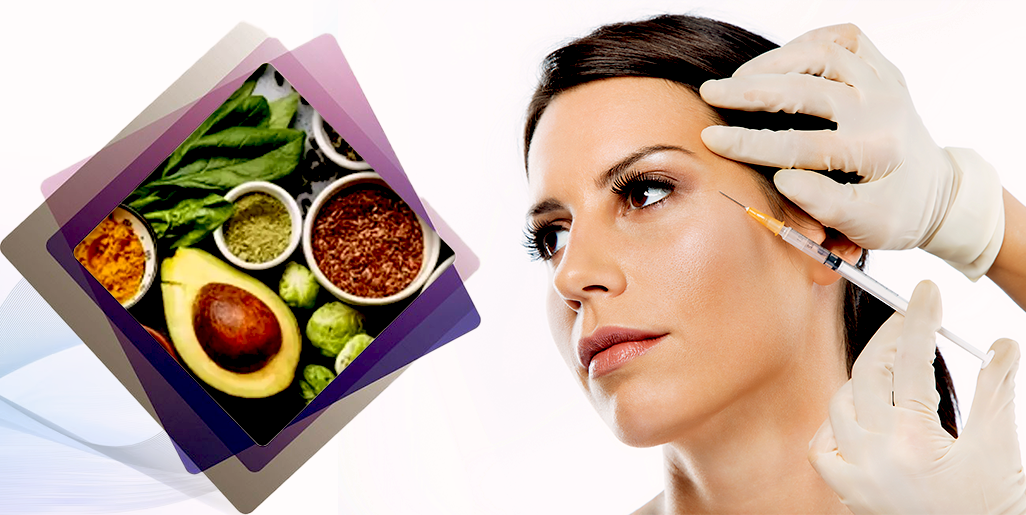Make An Appointment
For emergency Case
Booking A visit
Improve Your Platelet-Rich Plasma Therapy with Optimal Nutrition
A patient is receiving PRP treatment for other issues, including skin regeneration, joint pain and hair loss. Since treatment only works effectively if your body is at its very best because it uses the platelets contained in your own body to heal itself, there are a few necessary components. One of them is optimal nutrition. This helps the body be ready to support the healing process, accelerates healing, and makes the treatment effective. Now let’s analyze how your diet affects the overall scenario.
What You Should Eat to Help Your PRP Treatment
Foods Rich in Protein
Protein intake in the daily diet is the basis for tissue regeneration and the very thing PRP is trying to trigger. Feed your body the blocks it needs to recover. In addition to what you eat, add these foods:
- Fish
- Eggs
- Lean meats (chicken, turkey )
You can also add tofu, beans, chickpeas, lentils, and quinoa as a plant-based diet for non-meat eaters.
Vitamin C-Rich Diets
Vitamin C is the vitamin that promotes the production of collagen, which is necessary for tissue repair and healing after PRP therapy. Fruits such as:
- Papaya
- Kiwi
- Oranges
- Strawberries
You should add these fruits to your diet. Vitamin C is also present in vegetables such as spinach, broccoli, and bell peppers. This vitamin helps the body recover faster and more effectively.
Omega-3 Fatty Acids
During PRP therapy, it is a must to take omega-3 fatty acids in your daily meal since it helps in healing and lowers the inflammation rate. You should add items like:
- Avocados
- Walnuts
- Flaxseeds
- Chia seeds
- Salmon
By reducing inflammation and accelerating healing, these good fats will help the PRP process.
Foods High in Iron
Iron is important to add to your meal because it helps to synthesize red blood cells. Red blood cells carry oxygen into your body’s tissues. Enough iron can enhance the effects of PRP therapy, and oxygen is essential in healing. Good sources of iron include
- Red meat
- Poultry
- Beans
- Spinach
- Fortified cereals
You can add these foods with high-iron foods with sources of vitamin C, which increases the absorption of these nutrients.
Foods Rich in Zinc
The body needs zinc to divide and heal cells. Hence, it is important for the patient’s healing after PRP therapy. Some foods rich in zinc are
- Nuts
- Seeds
- Whole grains
- Shellfish
To boost the zinc effect, you can add cashews, almonds, and pumpkin seeds to your diet.
Hydration
Drinking enough water promotes healing and aids general health. Dehydration interferes with your recuperation because the process of nutrient transfer around your body requires water. Keep your fluid balance under control by drinking loads of water all day and thinking about electrolyte-containing beverages such as coconut water or sugar-free sports drinks.
What You Should Not Eat for Better Results
Processed Foods
Eating processed foods tends to slow down healing because they have many unhealthy fats and lots of sugar and preservatives. Avoid
- Potato chips
- Packaged snacks
- Fast food
- Sweets
Instead, you should focus on nutrient-rich, whole foods to help your body recover.
Sugary and Refined Sugars
Taking too much sugar can slow down the healing process and may induce inflammation. You should avoid
- Sugary drinks
- Candies
- Cakes
- Pastries
If you want to get better results out of PRP therapy, you need to avoid these items.
Alcohol
Drinking alcohol can influence your immune system and reduce your body’s ability to heal. Your body may become dehydrated due to this, which could impede the recovery process of PRP therapy. Alcohol intake should be minimized or avoided during PRP treatment.
Caffeine
Taking a normal amount of caffeine is usually acceptable, but more than this can interfere with your sleep and may contribute to dehydration, which interferes with healing. Drink one or two cups of tea or coffee per day. Drink plenty of water.
High-Sodium Foods
Processed meat, canned soup, and packaged snack foods that contain a lot of sodium may be dehydrating and even prevent your body from healing. Choose fresh, unprocessed foods and herbs and spices to give flavor instead of salt.
Trans Fats
Consuming trans fats as your meal promotes inflammation and hinders recovery. Most fried foods and baked goods contain some form of trans fat, as well as margarine. Replace these unhealthy fats with nuts, avocado, or olive oil.
